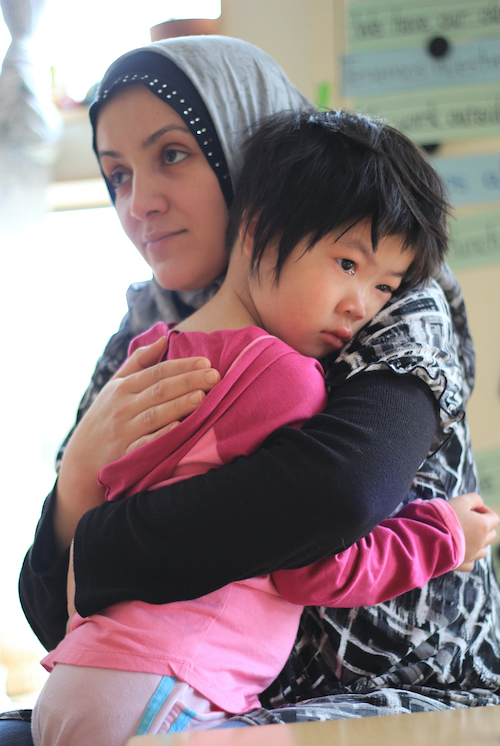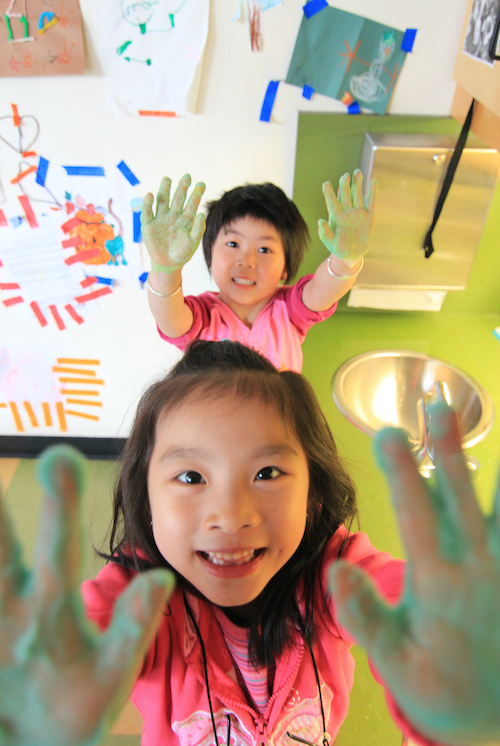 Head Start and Early Head Start programs promote all areas of development in infants, toddlers, and preschoolers. Education managers and other program leaders use their deep knowledge of child development to help staff and families understand that all behavior has meaning. They can offer information and support to help children maneuver through difficult periods and to guide children's social, emotional, and behavioral development. Opportunities such as coaching, mentoring, and in- and pre-service trainings can help education staff learn to pause and figure out what children's behaviors mean. Instead of just reacting to the behavior, they can respond in supportive, positive ways. This information can also be shared with families during group socializations and parent meetings. Reframing "challenging behavior" to "behavior has meaning" can change the way we see, respond to, and teach a child.
Head Start and Early Head Start programs promote all areas of development in infants, toddlers, and preschoolers. Education managers and other program leaders use their deep knowledge of child development to help staff and families understand that all behavior has meaning. They can offer information and support to help children maneuver through difficult periods and to guide children's social, emotional, and behavioral development. Opportunities such as coaching, mentoring, and in- and pre-service trainings can help education staff learn to pause and figure out what children's behaviors mean. Instead of just reacting to the behavior, they can respond in supportive, positive ways. This information can also be shared with families during group socializations and parent meetings. Reframing "challenging behavior" to "behavior has meaning" can change the way we see, respond to, and teach a child.
Life's circumstances sometimes pose more serious challenges to children’s emotional and behavioral development. Head Start and Early Head Start programs are prepared to use comprehensive services, including those of mental health consultants and professionals, to develop strategies for addressing these more serious challenges. Programs can also provide more targeted support for children and adults who may require it.  "Positive social and emotional development in the early years provides a critical foundation for lifelong learning and development."1 Head Start and Early Head Start programs are in unique positions to ensure that this foundation is sound.
"Positive social and emotional development in the early years provides a critical foundation for lifelong learning and development."1 Head Start and Early Head Start programs are in unique positions to ensure that this foundation is sound.
1 HHS, ACF, OHS, Head Start Early Learning Outcomes Framework: Ages Birth to Five, 22.
Read more:
Resource Type: Article
National Centers: Early Childhood Development, Teaching and Learning
Last Updated: November 5, 2020
